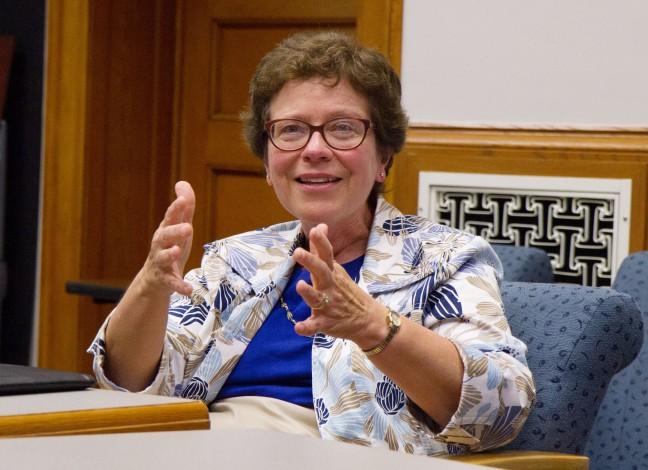“Liberty is a soul’s right to breathe.”
The famous Henry Ward Beecher quote is relevant now more than ever in the midst of one of our country’s most important debates: the role of free speech on university campuses.
This debate has recently manifested itself on our campus following Chancellor Rebecca Blank’s response to the #blacklivesmatter protest that occurred recently on campus in solidarity with those at Mizzou and Yale. In her statement, Blank expressed approval over the protest in terms of its inclusiveness and importance, but also expressed a statement regarding the exchange of ideas at University of Wisconsin — which is now under fire.
“While individuals are always free to express their own beliefs, no one is entitled to express them in ways that diminish others, or that devalues the presence of anyone that is part of our Badger community,” Blank said in the statement.
People have taken concern and criticized the chancellor’s statement, because it has been perceived as an attack on the right to free speech, which would be a threat to the free-flow of ideas on our campus. People are also concerned over the vagueness of the terms.
I would be remiss to say it is not admirable to be concerned over the status of free speech, and even more so, if I did not applaud the vigilance of those protecting it. But I do believe the criticisms of the statement in terms of its intent and its vagueness are somewhat over-amplified and misplaced.
While Blank perhaps could have chosen her words more carefully, I do see certain advantages to the way she has presented her statement. Take the vagueness for example. Critics have attacked the statement for being too vague in its use of words, such as “entitled,” “diminish” “or devalues.” But in doing so, these critics have failed to consider the alternative.
What if the university were to define what it meant to devalue a student, or the way in which one is “entitled” to speak? This would be even more of an infringement on free speech, as it would give members of UW a narrow frame in which to construct their ideas. Instead, by leaving these words as vague, it actually invites discussion, allowing for our university to come together and engage in free speech.
Following this, free speech does not mean people can say things with out consequence. When free speech is slightly limited, it causes people to be held accountable for what they are saying in the first place.
This is to say that if students and faculty are encouraged to formulate their ideas in a certain way, such as in avoiding the “othering” of certain groups, it causes people to put more thought into what they are saying.
Basically, by limiting free speech — if this even is limiting to free speech — it causes people to think before they speak rather than just shouting whatever is on their mind. This increased thought allows for better formulated opinions, and more enriching discussion.
This is a contrast to everyone just shouting whatever they wanted, whenever they wanted, without consequence.
I believe that both progressives and conservatives could learn to think a little more. I believe there is too much dismissing and not enough listening, as Blank said in her follow-up to her criticized statement.
To hearken back to the Beecher quote, if a soul cannot breathe, it does not have liberty. But in my opinion, if you allow it to breathe too much, you get a windbag. Just ask Donald Trump.
Henry Solotaroff-Webber ([email protected]) is a sophomore majoring in English and Spanish.














